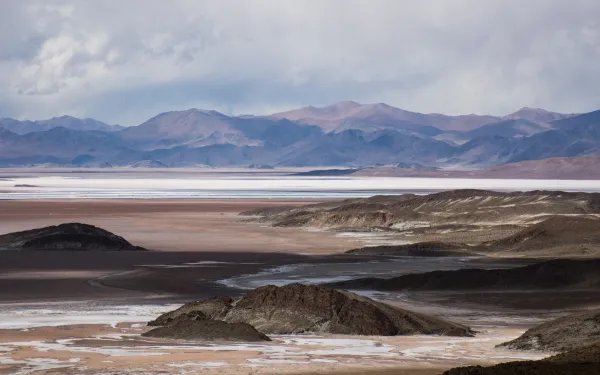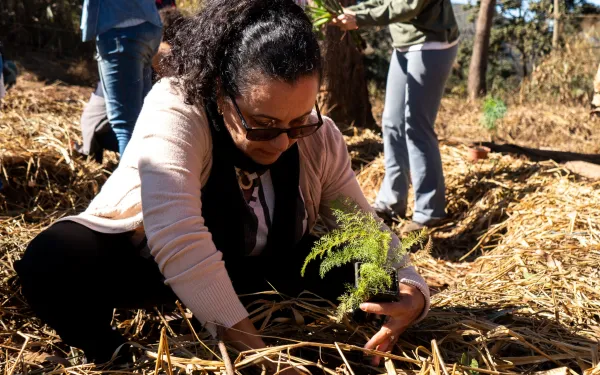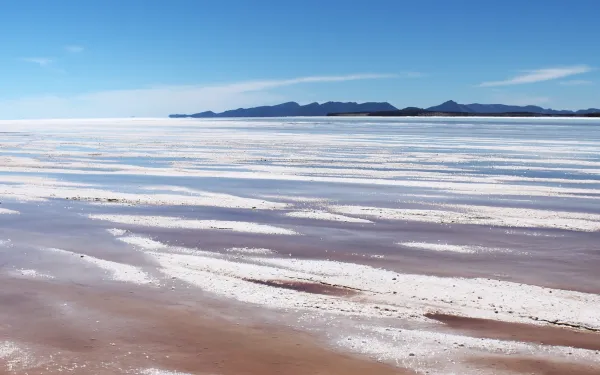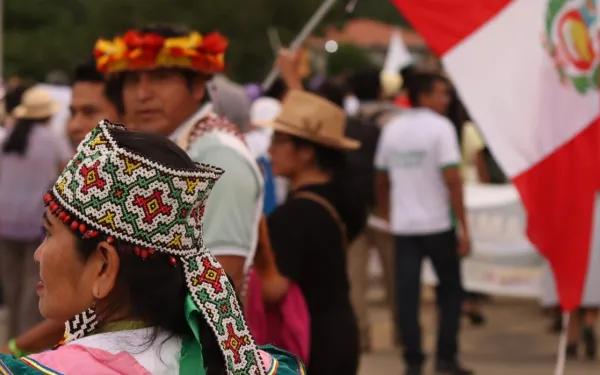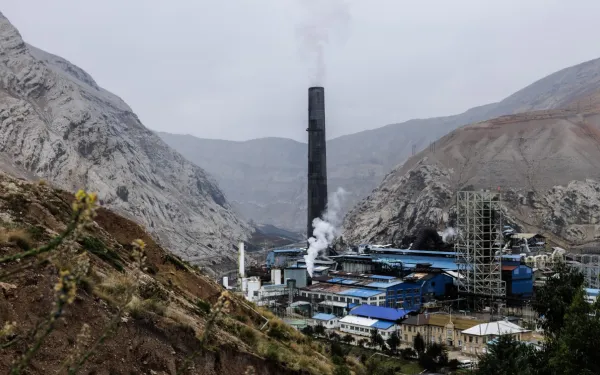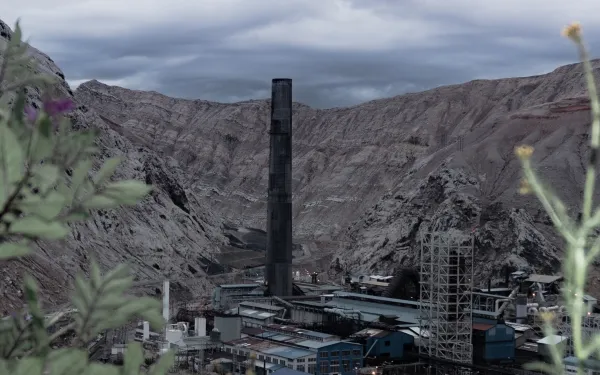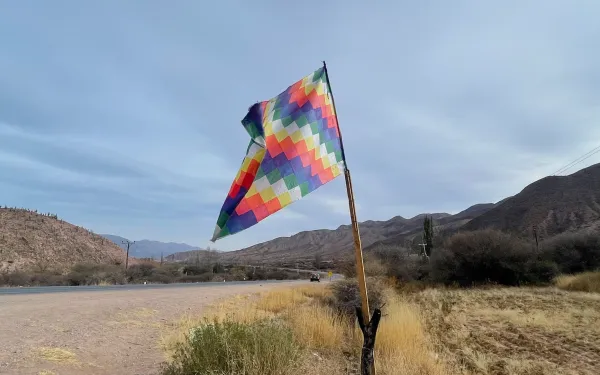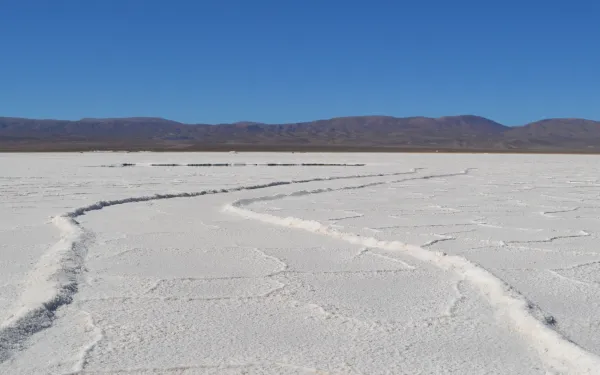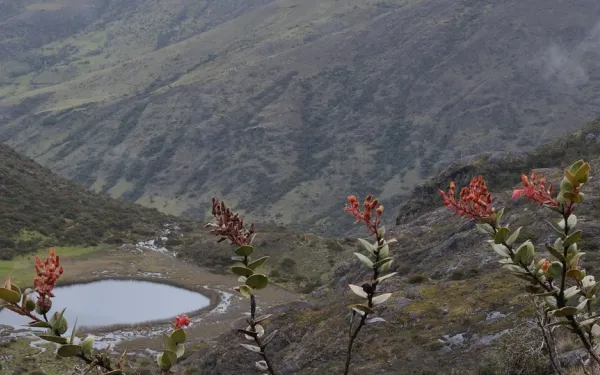
Declaration for the protection of the páramos and montane forests of the Tropical Andes
The undersigned civil society organizations, gathered in the framework of the 16th meeting of the Conference of the Parties (COP16) to the Convention on Biological Diversity (CBD) in Cali, Colombia: 1.URGE States Parties to the CBD to adopt domestic regulations and make international commitments to:recognize the crucial role of the páramos and the montane forest that protects them in global water regulation, mitigation and adaptation to the climate crisis, as well as in the conservation of biocultural diversity;protect the human rights, traditional knowledge and sustainable practices of indigenous peoples and peasant and traditional communities that inhabit the páramos and montane forest; andprohibit large-scale mining or similar practices in paramos and montane forests in terms of their socio-environmental impacts, in accordance with the principles of precaution and prevention. 2. REQUEST the States to include in their national biodiversity strategies and action plans indicators and monitoring mechanisms before the CBD that allow them to adequately measure and report compliance with the commitments they assume to advance in the conservation of these ecosystems under the terms of this declaration, as well as to guarantee the rights of the peoples and communities that inhabit them. 3. REQUIRE States and multilateral financial institutions to mobilize sufficient resources and technical capacities to guarantee the conservation of these ecosystems, as well as the protection of the indigenous peoples and peasant and traditional communities that inhabit them. We submit these requests to the States Parties to the CBD: Taking into account that there is a scientific consensus on the water regulatory power of the páramo and montane forest ecosystems[1] because they not only host endemic flora that captures freshwater from rain and fog, supplying it to the Andean cities located downstream; but also soils, lake and peatland systems that have a high concentration of organic matter and an enormous capacity to retain the liquid. In addition, the páramos wetlands are high Andean wetlands[2] under the protection of the Ramsar Convention on Wetlands of International Importance.Recognizing that páramos and their montane forests are fundamental in the carbon cycle; that due to low temperatures and the slow rate of decomposition of organic matter present in them, their soils, vegetation and wetlands capture and retain carbon dioxide (CO2)[3], contributing to climate change mitigation and adaptation and reducing the impact of meteorological events; and that these ecosystems are carbon sinks under the terms of the United Nations Framework Convention on Climate Change (UNFCCC).Reminding that, due to their biological and climatic characteristics, these ecosystems provide essential services for the population and contain biodiversity that is subject to special protection[4] and are home to endemic and native species of flora and fauna such as frailejones, pajonales, epiphytes, the chivito hummingbird, the Andean condor and the Andean bear, among others.Considering that the indigenous peoples and peasant and traditional communities of the region manage and protect the páramos and montane forests, ensure the preservation of common goods in their territories and are guardians of ancestral knowledge that is crucial for the conservation of biodiversity; that the integrity of the páramos is fundamental for the conservation of these ancestral practicess[5]; and that the páramos and montane forests are reserves of biocultural diversity within the framework of the CBD.Reiterating that the Intergovernmental Panel on Climate Change (IPCC)[6] warned of the impact of the climate crisis on páramos; and that they face other anthropogenic pressures such as fires, monocultures, livestock and invasive species[7].Warning that despite being strategic and sensitive ecosystems, deserving of the greatest protection, some of them are currently under strong pressure to develop large-scale mining projects, while others are at risk of being subject to mining concessions due to non-compliance with regulations and public policies that protect them or the lack of them.Bearing in mind that indigenous peoples and peasant and traditional communities have rejected these mining projects in their territories, even winning by majority vote "popular consultations" with which they have succeeded in defending the use of the land for traditional activities in their territories.Insisting that the removal of vegetation cover and the fragmentation of ecosystems generated by large-scale mining can affect the ecological balance, biocultural diversity and the provision of ecosystem services essential for life; acidify and reduce the amount of freshwater available for life systems; and break ecological and spiritual interconnectivity with other biomes and ecosystems, ending their capacity to capture carbon[8] and causing impacts in perpetuity.Following the warnings made by several UN rapporteurs and working groups on the negative impacts of mining on the environment and on human rights[9].Warning about certain dynamics recently employed by some mining companies in the countries of the region, particularly multinationals -such as the splitting of large mining titles, the change of exploitation method from surface to underground mining, as well as the formalization of small-scale miners in the area to outsource their activities by requesting multiple smaller areas-, which threaten to disguise large-scale mining processes with cumulative and synergistic environmental impacts on páramo ecosystems and montane forests that can be equal or more serious than those of a large-scale mining concession.Recalling that under the CBD States are required to: (i) monitor activities that have or are likely to have significant adverse effects on the conservation and sustainable use of biological diversity[10], such as mining; (ii) establish protected areas for biodiversity conservation[11] based on the traditional knowledge of indigenous peoples and peasant and traditional communities[12]; and (iii) adopt emergency measures when there are serious and imminent risks to biological diversity from natural or other events[13], such as risk from extractive activities. Signed byCentro Sociojurídico para la Defensa Territorial Siembra (Colombia)Colectivo Socio-Ambiental Juvenil de Cajamarca COSAJUCA (Colombia)Comité para la Defensa del Agua y el Páramo de Santurbán (Colombia)Consejo Territorial de Cabildos de la Sierra Nevada de Gonawindua CTC (Colombia)Corporación Ecológica y Cultural Penca de Sábila (Colombia)Movimiento Socioambiental Kumanday (Colombia)Natural Seeds Alliance (Colombia)Proyecto Dulcepamba (Ecuador)Acción Ecológica (Ecuador)Latinoamérica Sustentable (Ecuador)Unión de Defensores del Agua - UNAGUA (Ecuador)Federación de Organizaciones Indígenas y Campesinas del Azuay - FOA (Ecuador)Alianza de Organizaciones por los Derechos Humanos del Ecuador (Ecuador)Legal Defense Institute - IDL (Peru)Red Muqui (Perú)Red Internacional de Forestería Análoga - RIFA (Costa Rica)Mining Watch Canadá (Canada)Both ENDS (Netherlands)Redes del Agua Latinoamérica (Regional)Interamerican Association for Environmental Defense - AIDA (Regional)[1]Buytaert W. et al. Hidrología del páramo andino: propiedades, importancia y vulnerabilidad. Lovaina, U. de Lovaina, s.f.,, p. 10, 11, 23.[2] COP del Convenio de Ramsar, Resolución VIII.39. Los humedales altoandinos como sistemas estratégicos. Valencia, 2002.[3] Robert Hofstede et al. “Los páramos del Ecuador: Pasado, presente y futuro”, capítulo 12, págs 328 – 330, 2023[4] Robert Hofstede et al. págs 158 – 163, 2023.[5] IPBES (2018). The IPBES Regional Assessment Report on Biodiversity and Ecosystem Services for the Americas. Recuperado de: https://www.ipbes.net/assessment-reports/americas[6] IPCC (2013). Panel Intergubernamental de Cambio Climático, Quinto Informe de Evaluación, Recuperado de: http://www.ipcc.ch/home_languages_main_spanish.shtml[7] Ochoa-Tocachi et al., 2016, Tomado de IPBES (2018).[8] Madriñán, S., Cortés, A. J., & Richardson, J. E. (2013). Páramo is the world's fastest evolving and coolest biodiversity hotspot. Frontiers in genetics, 192.[9] Asamble General de la ONU, (i) Relatoría Especial sobre derechos humanos y sustancias y desechos peligrosos. Asamblea General de la ONU. A/HRC/51/35, 8 de julio de 2022, (ii) Relatoría Especial sobre el derecho humano a un medio ambiente limpio, saludable y sostenible. A/79/270, 2 de agosto de 2024, (iii) Grupo de Trabajo sobre la cuestión de los derechos humanos y las empresas transnacionales. Asamblea General de la ONU. A/78/155, 11 de julio de 2023.[10] Convenio sobre la Diversidad Biológica, Art. 7.C.[11] Ibid. Art. 8.C. CDB.[12] Ibid. Art. 8.J CDB.[13] Ibid. Art. 14.E. CDB.
Read more

